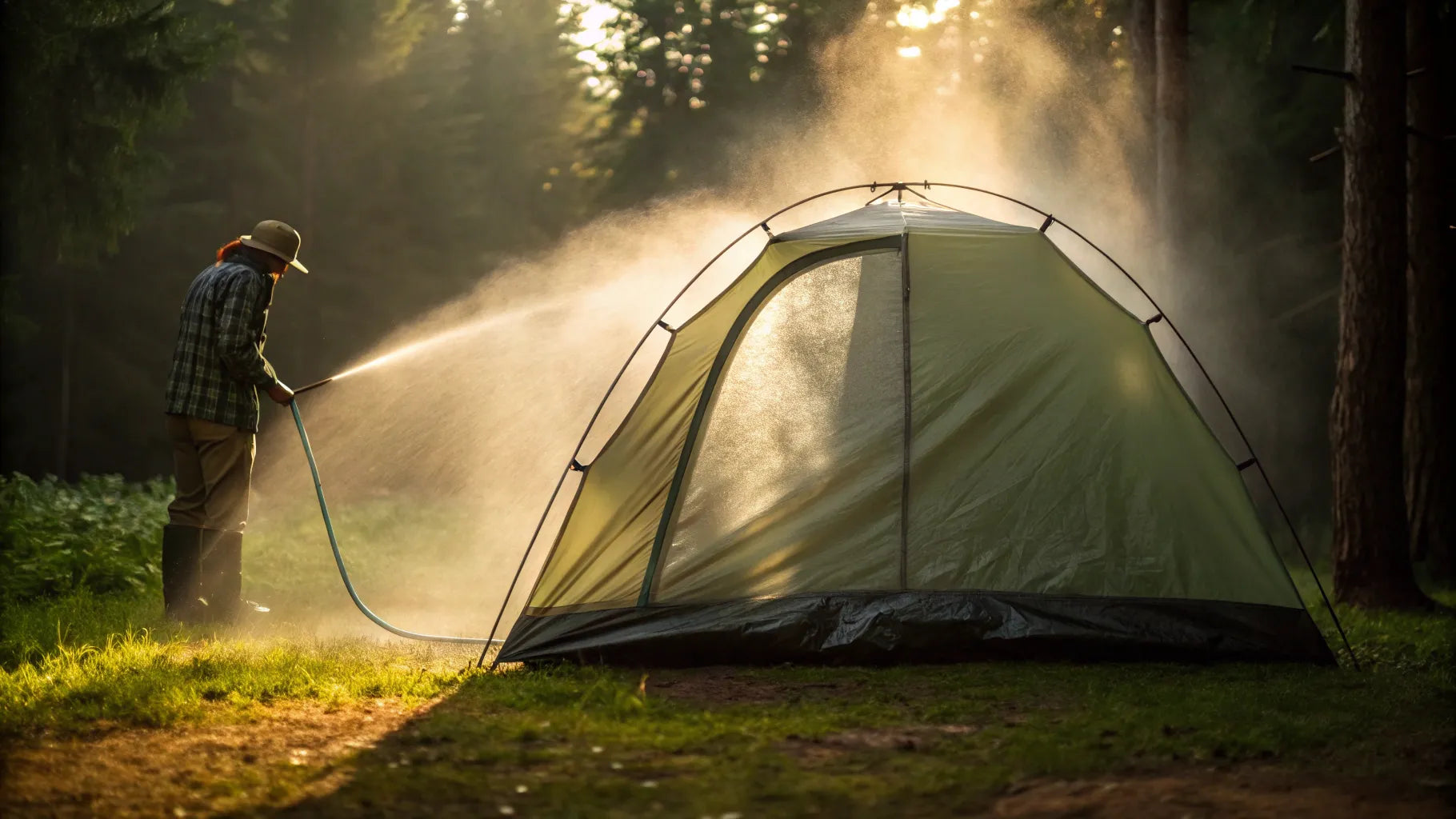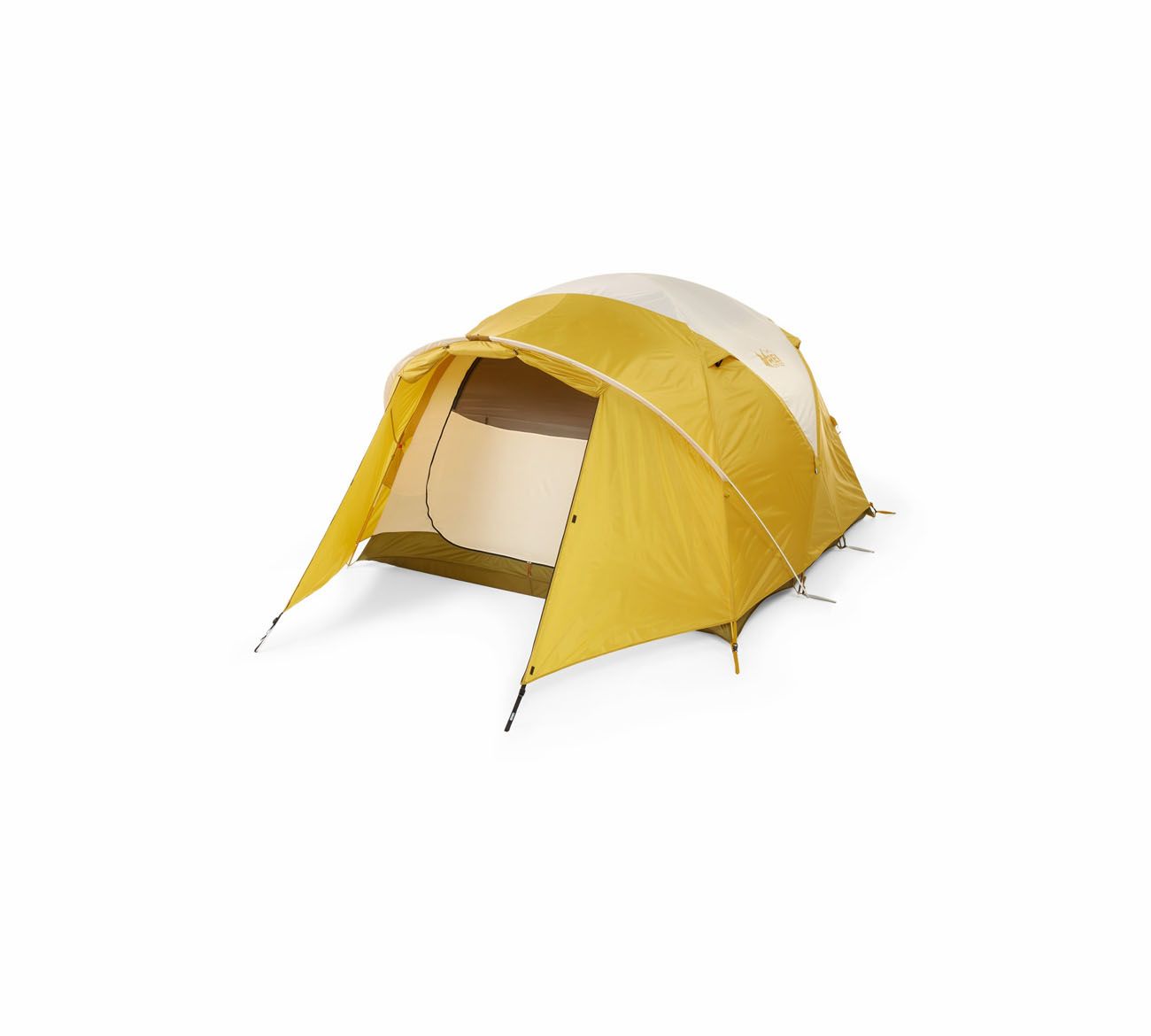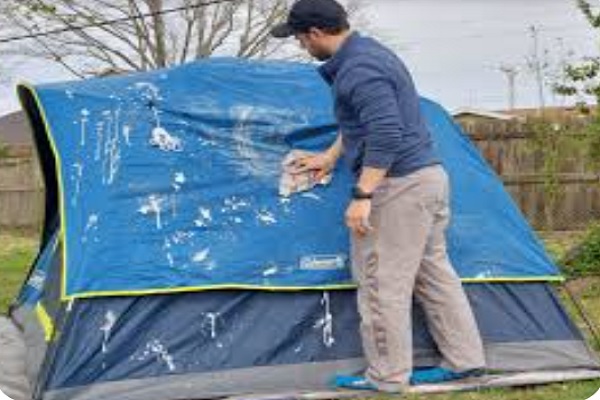Have you ever wondered if your camping tent can be washed without ruining it? After a fun trip outdoors, your tent might be covered in dirt, sweat, or even stubborn stains.
You want it clean and fresh for your next adventure, but you’re unsure how to do it safely. Washing your tent the wrong way could damage the fabric or affect its waterproofing. You’ll discover simple, effective tips to clean your tent properly.
Keep reading to learn how to make your tent look like new again—so it’s ready for every camping trip ahead.
Why Clean Your Tent
Camping tents get dirty from dirt, sweat, and weather. Cleaning your tent keeps it fresh and ready.
Regular cleaning helps your tent last longer and stay comfortable during trips.
Benefits Of A Clean Tent
A clean tent looks better and feels nicer inside. It keeps you safe and healthy on your trip.
- Prevents mold and mildew growth
- Reduces bad smells
- Improves tent fabric life
- Keeps zippers and seams working well
- Ensures a more comfortable camping experience
Risks Of Neglecting Cleaning
Not cleaning your tent can cause damage and health problems. Dirt and moisture harm the fabric.
Mold and mildew can grow, causing bad smells and allergies. Dirty tents can also attract bugs.
- Fabric weakens and tears easily
- Unpleasant odors develop
- Mold and mildew may cause allergies
- Zippers can get stuck or break
- Bugs and insects may infest the tent
When To Wash Your Tent
Camping tents get dirty after use. Dirt, sweat, and weather can leave stains and smells. Cleaning your tent keeps it fresh and lasts longer.
Knowing when to wash your tent is important. Washing too often can damage it. Washing too little can cause mold and bad odors.
Signs Your Tent Needs Cleaning
Look for these signs to know if your tent needs washing. Cleaning your tent helps keep it safe and comfortable.
- Visible dirt and mud stains on the fabric
- Strong or unpleasant smells inside the tent
- Sticky or oily spots from food or body oils
- Mold or mildew patches on the tent walls
- Dust or pollen buildup after long storage
- Insects or bugs inside the tent
Ideal Cleaning Frequency
How often you clean your tent depends on use and conditions. Regular cleaning keeps the tent in good shape.
Clean your tent after these times:
- After camping in rainy or muddy places
- When you see signs of dirt or mold
- After long storage, before next use
- Every few camping trips if used lightly
Preparation Before Washing
Cleaning a camping tent needs careful preparation. This helps protect the fabric and keeps it strong.
Before washing, check the tent well and remove any dirt. This makes cleaning easier and better.
Removing Dirt And Debris
Start by shaking the tent to get rid of loose dirt and leaves. This stops dirt from spreading during washing.
Use a soft brush or cloth to gently clean any stuck dirt. Avoid harsh scrubbing to protect the fabric.
- Shake tent outside to remove loose debris
- Brush off mud and dirt with a soft brush
- Spot clean small stains with mild soap and water
Checking For Damage
Look over the tent fabric for holes, tears, or weak spots. Fixing small damage before washing helps keep the tent safe.
Check zippers and seams carefully. Damaged parts can get worse if washed without repair.
- Inspect fabric for holes or tears
- Check all seams for loose stitching
- Test zippers to ensure they work smoothly
- Repair small damage before washing

Credit: www.battlbox.com
Washing Methods
Camping tents get dirty from outdoor use. Washing them keeps fabric strong and clean. There are safe ways to wash tents to avoid damage.
You can clean tents by hand or use a washing machine. Choosing the right cleaning products helps protect the tent material.
Hand Washing Techniques
Hand washing is gentle and helps control cleaning well. Use a large tub or clean area to wash your tent.
Start by shaking out dirt and dust. Use lukewarm water and mild soap to scrub gently with a soft cloth.
- Fill tub with lukewarm water
- Add mild soap or tent cleaner
- Use soft brush or cloth
- Gently scrub dirty areas
- Rinse thoroughly with clean water
- Air dry in shade to avoid damage
Machine Washing Tips
Some tents can be washed in a machine. Check the tent label to be sure. Use a front-loading machine without an agitator.
Wash on a gentle cycle with cold water. Avoid using a dryer. Hang the tent to air dry after washing.
- Check tent care instructions first
- Use front-loading washing machine
- Choose gentle cycle with cold water
- Use mild detergent only
- Do not use bleach or fabric softeners
- Air dry, do not tumble dry
Using The Right Cleaning Products
Choose cleaning products made for outdoor gear. Avoid harsh chemicals that can harm tent fabric or coatings.
Mild soap or special tent cleaners work best. Do not use bleach, strong detergents, or solvents on your tent.
- Mild soap or gentle detergent
- Tent-specific cleaning products
- Avoid bleach and fabric softeners
- No solvents or harsh chemicals
- Use lukewarm water for mixing
Drying And Storage
After washing a camping tent, drying it properly is very important. A wet tent can develop mold and bad smells. Storing the tent right keeps it safe and ready for next use.
Good drying and storage help the tent last longer. This guide shares easy tips to dry and store your tent well.
Best Drying Practices
Dry your tent in a shaded, well-ventilated place. Direct sunlight can damage the fabric and waterproof coating. Spread the tent flat or hang it using poles or ropes.
Check all parts, like the rainfly and floor, to make sure they dry fully. Wet spots can cause mold and weaken the material.
- Choose a shady spot with good airflow
- Spread or hang the tent to dry evenly
- Make sure all parts are dry before storing
- Do not use heat sources like dryers or heaters
Storing Your Tent Safely
Store your tent in a cool, dry place. Avoid damp basements or direct sunlight areas. Keep the tent loosely packed to keep the fabric fresh and avoid creases.
Use a large storage bag or a breathable container instead of the small tight stuff sack. This helps air flow and prevents damage over time.
- Keep the tent in a dry, cool spot
- Do not store the tent when wet
- Use a large, breathable storage bag
- Store away from direct sunlight and heat

Credit: www.nytimes.com
Maintaining Tent Waterproofing
Camping tents need waterproofing to keep you dry. Washing your tent can affect this protection. It is important to clean your tent carefully and maintain its waterproof coating.
Proper care helps the tent last longer and stay water-resistant. You should know how to reapply waterproof coating and protect the seams and fabric.
Reapplying Waterproof Coating
Over time, the waterproof coating on your tent wears off. Washing and use can make the coating less effective. You can reapply waterproof spray or sealant to restore protection.
Use products made for tents and outdoor gear. Spray or brush the coating evenly on the tent fabric. Let it dry completely before packing your tent.
- Clean the tent before applying the coating
- Apply waterproof spray in a well-ventilated area
- Cover all areas, especially the floor and rainfly
- Allow the tent to dry fully before use
Protecting Seams And Fabric
Seams are weak points in tents where water can leak. Most tents have seam tape to stop leaks. You should check seams for damage and reseal them if needed.
Use seam sealer to cover stitches and any small holes. Avoid harsh washing methods that can harm fabric and seams. Gentle cleaning helps keep your tent strong and waterproof.
- Inspect seams regularly for cracks or peeling tape
- Apply seam sealer to any damaged areas
- Use mild soap and soft brushes to clean the fabric
- Dry the tent fully before storing to prevent mold
Common Mistakes To Avoid
Cleaning a camping tent is important for its care and lifespan. Many campers want to keep their tents fresh and clean. Yet, some common mistakes can harm the tent during washing.
Knowing what to avoid helps keep your tent safe and ready for your next trip. Here are some mistakes to watch out for.
Using Harsh Chemicals
Harsh chemicals can damage the tent fabric and its waterproof coating. Strong detergents, bleach, or solvents break down the material.
These chemicals may cause colors to fade and seams to weaken. Always use mild soap made for outdoor gear or tents.
- Avoid bleach or strong detergents
- Use gentle soap or specialized tent cleaner
- Test cleaner on a small area first
- Rinse the tent well to remove all soap
Improper Drying Techniques
Drying your tent improperly can lead to mold, mildew, and bad smells. Folding or packing the tent while still wet is a big mistake.
Dry the tent fully in the shade before storing it. Direct sunlight can weaken the fabric if exposed too long.
- Never store a wet or damp tent
- Air dry the tent in a shaded area
- Set up the tent or hang it to dry
- Avoid prolonged sun exposure

Credit: www.popularmechanics.com
Frequently Asked Questions
Can You Wash A Camping Tent In A Machine?
No, washing a camping tent in a machine is not recommended. Machine washing can damage the fabric and seams. Instead, hand wash your tent using mild soap and cold water. Gently scrub any stains or dirt, and ensure thorough rinsing.
Allow it to air dry completely before storing.
How Do You Clean A Camping Tent?
To clean a camping tent, set it up outdoors or in a large space. Use a soft sponge or cloth with mild soap and cold water. Gently wipe down the tent, focusing on dirty areas. Rinse thoroughly and allow it to air dry completely before packing away.
Can Rain Damage A Camping Tent?
Rain itself won’t damage a camping tent if it’s waterproof. However, prolonged exposure to moisture can weaken seams and fabric over time. Ensure proper waterproofing and ventilation. Always dry your tent thoroughly after exposure to rain to prevent mold and mildew growth, which can damage the material.
How Often Should You Wash A Camping Tent?
Wash your camping tent as needed, typically after every few trips. If you notice dirt, stains, or odors, it’s time to clean it. Regular maintenance helps prolong the tent’s lifespan. Avoid frequent washing to preserve the fabric’s waterproof coating and overall integrity.
Conclusion
Camping tents can be cleaned safely with the right steps. Use gentle soap and avoid harsh chemicals. Rinse well and dry completely before storage. Regular washing keeps your tent fresh and ready. Clean tents last longer and stay strong. Treat your gear with care for many trips.
Simple cleaning helps protect your outdoor investment. Remember, a clean tent means a better camping experience. Keep it fresh, keep it ready.

